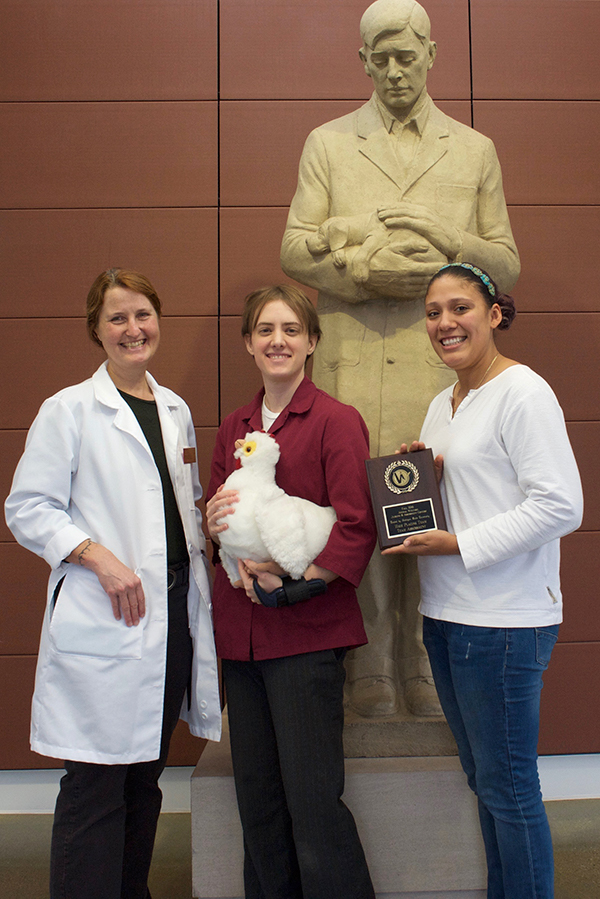
December 1, 2016
An Iowa State team finished first in the veterinary school division live assessment exercise during the 15th annual Intercollegiate Animal Welfare Judging and Assessment Contest. The competition was held at The Ohio State University on November 12-13.
More than 100 veterinary, graduate and undergraduate students representing 15 universities participated in the national competition where they demonstrate their understanding and practical knowledge of animal welfare. During the two-day event, students evaluated live and virtual scenarios of animal facilities and presented their findings to a panel of judges.
This year’s live scenario involved a laying hen research facility. Dr. Suzanne Millman, the team’s coach and associate professor at the College of Veterinary Medicine, said this is where the students really strut their knowledge and skills.
“In the live assessment, the students had to review the production and health information that they are given, make direct observations of the birds and their housing, and management of the facility,” Millman said. “Then, they identified key strengths and weaknesses, and developed suggestions for change that would improve the welfare of the hens.”
It’s the toughest event in the competition, says Millman. “It tests the students’ ability to work as a team and apply their knowledge to real-world scenarios.”
During the competition, the students also evaluate three virtual scenarios and receive scores based on their evaluation and defense of it.
The competition has three sections: undergraduate student, graduate student, and veterinary student. This is the 10th year that the competition has had a veterinary college division, and the 9th year that Iowa State veterinary students have competed.
Helping Millman prepare the students were Drs. Yuko Sato, ISU poultry extension veterinarian and Kelly Still Brooks, ISU field services clinician, along with Dr. Amanda Steffen of the Animal Rescue League of Iowa and Luna KC, a PhD student and previous competitor. “They provided the Iowa State students with additional training about this year’s competition species: laying hens, meat sheep, purebred dogs purchased from breeders, and laboratory guinea pigs,” Millman added.
“There’s also an elective course at the college called “Animal Welfare Assessment and Training” which is open to veterinary students, as well as graduate and undergraduate students,” Millman said.
The competition (and elective course) provides students with an opportunity to develop the analytical and critical thinking skills, as well as an understanding of ethics, necessary for success in the field of animal welfare.
“For veterinarians, an important part of their job is discussing animal welfare with the client and the public,” Millman said. “The competition is a great teaching tool for students since it helps them apply their knowledge about animal welfare, and communicate their assessments to a team of experts.”
